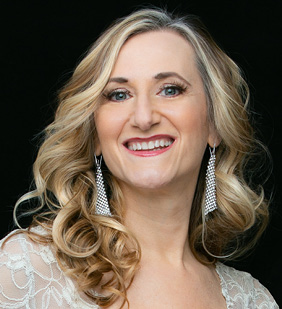
Mary Oleskiewicz
Area of Expertise
Flute (Modern Flute, Baroque Flute, Native and South American flutes), Musicology, Performance Practice, Chamber Music Coaching, Latin American Music and Dance, Organology
Degrees
PhD, Duke University (Performance Practice)
MA, Case Western Reserve University (Music Before 1750), with Honors
BMus, Dana School of Music, Youngstown State University (Flute Performance), Summa Cum Laude
Additional Information
Hailed as "one of the greatest baroque flutists of our time" by American Record Guide (2014), Professor Oleskiewicz has served on the UMass Boston faculty since 2001, where she is currently Music Program Director in the Dept. of Performing Arts, and also serves as its Coordinator for Juries and Recitals. She also serves on the university's College of Liberal Arts Executive Committee, the committee for Majors, Honors, and Special Programs, and the Library Committee. A Humboldtian, she was recently honored with an appointment to the Alumni Council of the American Friends of the Alexander von Humboldt Foundation.
Prof. Oleskiewicz has also served as Guest Professor at the University of the Arts (Berlin, Germany); Duke University; Queens College (CUNY); and as professor of flute at The University of South Dakota. Between 1998 and 2001, she held the post Curator of Musical Instruments at the National Music Museum.
After winning first prizes in both the National Flute Association’s Baroque Flute Artist and Doctoral Dissertation Competitions, she quickly established herself as an international performer of historical flutes and the leading expert on the flutist, theorist and composer Johann Joachim Quantz. She is an authority on music at the 18th-century court of the Prussian King Frederick “the Great,” and her numerous, highly acclaimed essays, editions and recordings have focused on the music of Quantz, C.P.E. Bach, King Frederick and the Bach family. Her musicological and performing expertise also extends to music of Latin America and the Caribbean, in particular the musics of Argentina, the Alti Plano, and Brazil.
A resident of Boston (USA), she has performed, lectured and given master classes throughout Europe and North America, Japan, Australia and Mexico. Currently principal flutist of Newton Baroque, she has also performed under Roger Norrington with Boston’s Handel and Haydn Society Orchestra, and has appeared as soloist with numerous period instrument ensembles, including La Fontegara of Mexico City; Newport Baroque; Arcadia Players; Boston Pro Musica; Chicago’s Baroque Band; and the Youngstown Symphony Orchestra. Prof. Oleskiewicz has released five solo recordings with the Hungaroton Classic and Naxos labels. Her recent world premiere CD of flute concertos, performed with Miklos Spanyi and Concerto Armonico, is receiving international acclaim. During 2016 she toured China on both modern and baroque flutes.
Prof. Oleskiewicz's recording projects are closely connected to her research and editing work. In 2012 she published the first editions of repertoire from her CD released in 2011: Flute Sonatas by Frederick “the Great” (for Breitkopf & Härtel). As a contributing editor for Carl Philipp Emanuel Bach: The Collected Works, she published a new critical edition of the sonatas for flute, harp, oboe and viola da gamba, taking into account newly available musical sources. She is regularly featured as a contributor to Flutist Quarterly and the Dutch Flute Society’s Fluit. Her book, Bach Perspectives vol. 11: J.S. Bach and His Sons for the American Bach Society, was commissioned by the American Bach Society and published by University of Illinois Press in 2017.
Professor Oleskiewicz is the recipient of several prestigious multi-year fellowships from the Alexander von Humboldt Foundation (Germany) and the DAAD (German Academic Exchange Service) allowing her to reside for extensive periods in Germany, Russia and elsewhere to research, edit and record flute music of the 18th-century. She is also a three-time recipient of the University of Massachusetts’ Joseph P. Healey Award, and she was honored as a guest speaker and performer for her research contributions at the Provost’s Research Luncheon in 2013.
A fluent German speaker, with over six years of residency in the cities of Berlin and Dresden, during 2008-2009 Professor Oleskiewicz taught performance practice in at the University of the Arts in Berlin. She has also presented a series of guest lectures at Queen’s College in NYC, for the Year of Brazil.
Among her principal flute teachers were Walter Mayhall (modern flute) and Sandra Miller (baroque flutes). Her instrumentarium of flutes ranges from the middle ages to the nineteenth and twentieth centuries. She also plays baroque recorder, Argentine bandoneon and improvises on Native and South American flutes.
Argentine Tango and Brazilian Samba
Since 2005 Mary Oleskiewicz has been dancing, teaching, researching and performing Argentine tango, which she has studied privately with many of the most renowned tango masters in Buenos Aires, Berlin and the U.S. During 2014 she travelled internationally to offer seminars and lectures on the music of the virtuoso bandoneon player and orchestra leader Anibal Troilo as part of the centenary celebrations of his birth. As a dancer, she has performed and lead tango workshops at the Albuquerque and Boston Tango Festivals, the Boston Brazilian Festival, Montango (Montreal), and Phoenix Studio (Berlin, Germany) and elsewhere. As a musician, she has toured on flute and bandoneon as a member of the Qtango Orchestra of Albuquerque, NM. She recently began performing Brazilian samba no pe and samba batucada with Grooversity in Boston, MA.
When she is not fluting, dancing, writing, or teaching, she spends her time looking through the lens of a camera.
TEACHING AND CLASSES:
Prof. Oleskiewicz teaches for the UMass Honors College and for the Department of Performing Arts in the College of Liberal Arts and is the UMB Tango Club Advisor. Her courses include applied Modern and Baroque Flute; Western Music History and Literature; J.S. Bach; Beethoven, Romance and Revolution; Performance Practice; Brazilian Samba (dance and percussion); Music of Latin America and the Caribbean; and Argentine Tango
